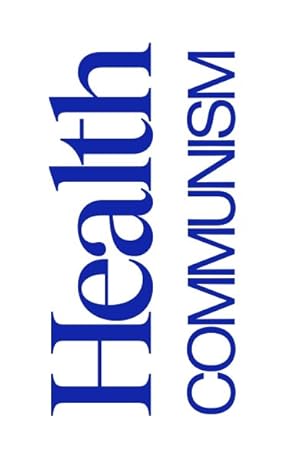Thought Soup - WASTE reflections
Hi everyone, I wanted to offer a few quotes that caught my attention while reading the introduction and chapter 2 from Health Communism by Beatrice Adler-Bolton and Artie Vierkant before our video chat tomorrow at 12p ET.
WASTE
The only way to spur genuine liberation is to assure care even for the most vulnerable, those at the most extreme margins. To borrow from Black feminist thought, we mean to bring the margins to the middle. (page 23)
there is a line of thought within some anti-capitalist discourse that regards health as an ancillary movement to the primary goal of class and worker struggle ... We argue instead that the social production of health and ability are inextricably linked to the capitalist political economy, and therefore the abolition of health from capital is under-theorized as a vulnerable site of attack. (page 27)
... it is important to note that the strength of the AMA's public lobbying position was predicated on the support of other business and professional organizations aligned with the AMA's class interests. (page 34)
As described by former member of the Social Security Board Isidore (Ig) Falk, the AMA opposed these benefits because "the next thing you'd have a broader disability program and the next thing you'll be giving medical care to the disabled." (page 36)
Tobbell quotes Merck's president John T. Connor as concluding that the "Soviets [planned] to 'export' their medical talent to underdeveloped countries in their effort to 'sell Communism.'" Connor recommended that the United States should pursue an essentially biopolitical-colonial strategy, training more physicians in order to "embark on a foregin medical aid program in a 'longevity race' with the Russians, raising the life span throughout the world." (Ironically, as many public health scholars have pointed out, there is in reality greater positive impact on "life expectancy" from socialized medical systems than privatized or capitalist ones.) (page 39)
Malingerers of the world unite. (page 41)
Reflections
After reading this chapter, I've caught myself talking with different people about the centrality of health in any progressive agenda. If you deal with health, you sort of deal with everything; if you care about people facing exposure as the weather gets colder, you are in some senses dealing with homelessness, but you are also centrally dealing with health; if you're protecting people as they leave abusive workplaces, you are in some senses dealing with labor, but you are also centrally dealing with health; if you care about people's food insecurity, you are in some senses interacting with food deserts and sustainability, but you are also centrally dealing with health.
If you address health, in many ways, a lot of the other ways capitalism facilitates coercion - in roundabout and circumspect ways - to force people to do compromising, endangering, demeaning, or morally abhorrent things. How many people would bother to work for weapons and defense contractors if there was simply no way on this planet that their access to shelter, healthcare, food, and safety would be compromised if they walked away from their job? Why is their job the lynchpin to everything they need to survive?
On Saturday I would love to talk about the conservative bent of the medical profession. If you don't want to get on video chat on Saturday, if you'd like to reach out some other way, consider signal, bluesky, twitter/x, mastodon, email, etc... I would be grateful to hear your thoughts or experiences with healthcare (whether as a medical professional or as a patient).
Chat on Saturday
As usual, we'll have our video chat on Saturday at 12pm ET; you can join here. We'll talk about chapter 1 of Health Communism and whatever else comes to mind.
Buy the book
If you haven't bought the book yet, you can still catch up. You can buy it here. Purchases made through the Workshops4Gaza fundraiser send proceeds (or more, if you opt to donate more) to The Sameer Project.
If you can't buy the book (or can't buy it from Open Poetry because of shipping constraints or something), please consider making a donation directly to The Sameer Project, if you have the money for it. If you don't please consider sharing the book (or the reading group) with comrades and other like-minded friends.
